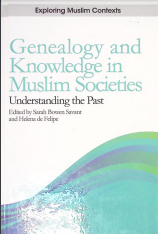E-KİTABLAR

Genealogy and Knowledge in Muslim Societies Understanding the Past
| Müəllif | |
|---|---|
| Nəşr olunduğu il | 2003 |
| Elm sahəsi | Din |
| Nəşriyyat | |
| Nəşr yeri |
. Genealogy and Knowledge in Muslim Societies Understanding the Past. , , 2003.
Genealogy has long been recognised as one of the most important and authori tative organising principles in Muslim societies. Expressions of genealogy have over the course of history taken particular forms and performed important func- tions in Muslim societies, so many in fact that it would be impossible to describe them comprehensively. The Prophet's family tree, including his ancestors, descendants (the sryyids or shartfs) and adoptive clients (mawall), has provided an important paradigm, underwriting dynastic arrangements, providing access to patronage and supporting power brokers and mediators. Other patterns of kinship, including tribal lineages, descent from the Companions of the Prophet or descent from Sufi saints, have conferred similar forms of opportunity and/ or prestige. Converts with family ties to other Muslims have felt a stronger sense of connection to their new faith; in the first centuries of Islam, converts even became fictively adopted into Arab tribes. Today, ideas about kinship and descent continue to shape communal and national identities in virtually every Muslim country, where they operate at the very highest levels of state and religion and where there is often a certain truth to the Arabic saying, "Nobility is gervealogy. The noble in any one people shares kinship with the noble in every other people.""